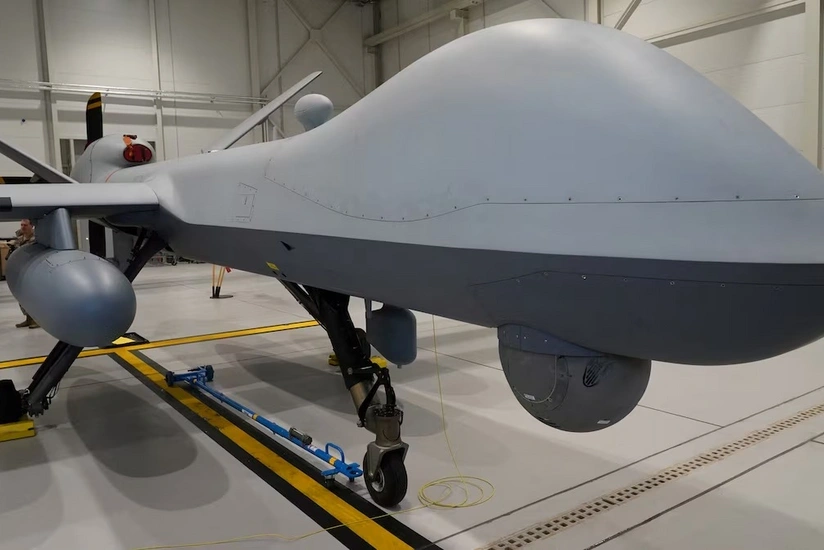Trump to reinterpret 1987 missile treaty to sell heavy attack drones abroad
- 06 September, 2025
- 15:53

US President Donald Trump is expected to unilaterally reinterpret a 38-year-old arms control treaty to sell sophisticated "Reaper" style and other advanced military drones abroad, according to a US official and four people familiar with the plan, Report informs via Reuters.
The new interpretation would unlock the sale of more than 100 MQ-9 drones to Saudi Arabia, which the kingdom requested in the spring of this year and could be part of a $142 billion arms deal announced in May. US allies in the Pacific and Europe have also expressed interest.
By designating drones as aircraft like the F-16 rather than missile systems, the United States will sidestep the 35-nation Missile Technology Control Regime (MTCR) agreement it signed in 1987, propelling drone sales to countries like the UAE and Eastern European nations that have struggled to get their hands on America's best unmanned aerial vehicles.
The new policy will allow General Atomics, Kratos, and Anduril, which manufacture large drones, to have their products treated as "Foreign Military Sales" by the State Department, allowing them to be easily sold internationally, according to a US official speaking to Reuters on condition of anonymity.
This effort is the first part of a planned "major" review of the US Foreign Military Sales program, the official said. Under the current interpretation of the MTCR, the sale of many military drones is subject to a "strong presumption of denial" unless a compelling security reason is given and the buyer agrees to use the weapons in strict accordance with international law.
The MTCR was originally meant to curb the sale of long-range missiles that can deliver weapons of mass destruction. Though drones were invented many years later, they were considered within the scope of the MTCR due to their ability to fly long distances and carry weapons.
US drone manufacturers are facing stiff competition overseas, especially from Israeli, Chinese and Turkish rivals who often sell under lighter restrictions.